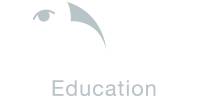In terms of academic writing, a credible source must be reliable, unbiased, and is supported by facts. However, the meaning of a credible source varies depending on the way in which it is used. Whenever writing any sort of paper, always use and reference authoritative sources, it is best to choose the source evaluation tool that best suits your needs.
It's important to assess sources critically because using credible and reliable sources makes one a better writer. Consider unreliable sources to be contaminants to the credibility; if the unreliable sources are used in one's work, the work may lose its credibility.
How to make sure a source is credible?
Authority:
To make sure that the data and source being used is written by an assured author, ask yourself some questions first. Does the author you got your source from have enough authority to speak about the topic? Has the data been subjected to a peer review? Do they have evidence of their qualifications? It is essential to make sure that there is enough documentation, such as footnotes, bibliographies, credits, or quotes, to help you decide if the publication is accurate enough or not.
Timeliness:
Your sources must be recent enough to be relevant to your subject. For example, if your paper is about environmental research, you'll want the most up to date material, but if it's about the first revolution, you can use information from a wider time period.
Accuracy:
Always double check and compare the information from the current source to a previously trusted and assured source. Keep an eye open for factual errors about when it comes to the content's quality.
Audience:
Have a background on who the intended readers are, and know what is the intention of the publication. Always know how to differentiate between magazine, newspaper, and journal audiences.
Relevancy:
Know whether the article is related to the chosen topic or not. If the article has a summary or abstract written, read it before using the source.
There are 5 questions you must know the answers to, in order to help you know whether the sources used are credible or not. (5Ws)
Who is the author? (Authority)
Where is the content from? (Publisher)
What is the purpose of the content? (Accuracy)
Why does this type of source exist? (Desire & Objectivity)
How does this type of source compare to others? (Identifying what is what)
Tips:
Ads on the website can mean that the results and information are less trustworthy.
The dates on which pages were last modified provide important information about their currency and accuracy.
Reliable websites tend to have a more professional appearance than personal websites.
Disabled or inaccurate links may indicate that the site is neglected, and that other information on it is out-of-date or untrustworthy.
How to Know if a Source is Credible
How to Know if a Source is Credible
Credible sources must be reliable, unbiased, and are supported by facts. Using credible and reliable sources makes one a better writer.
In terms of academic writing, a credible source must be reliable, unbiased, and is supported by facts. However, the meaning of a credible source varies depending on the way in which it is used. Whenever writing any sort of paper, always use and reference authoritative sources, it is best to choose the source evaluation tool that best suits your needs.It's important to assess sources critically because using credible and reliable sources makes one a better writer. Consider unreliable sources to be contaminants to the credibility; if the unreliable sources are used in one's work, the work may lose its credibility. How to make sure a source is credible?Authority:To make sure that the data and source being used is written by an assured author, ask yourself some questions first. Does the author you got your source from have enough authority to speak about the topic? Has the data been subjected to a peer review? Do they have evidence of their qualifications? It is essential to make sure that there is enough documentation, such as footnotes, bibliographies, credits, or quotes, to help you decide if the publication is accurate enough or not.Timeliness:Your sources must be recent enough to be relevant to your subject. For example, if your paper is about environmental research, you'll want the most up to date material, but if it's about the first revolution, you can use information from a wider time period.Accuracy: Always double check and compare the information from the current source to a previously trusted and assured source. Keep an eye open for factual errors about when it comes to the content's quality.Audience: Have a background on who the intended readers are, and know what is the intention of the publication. Always know how to differentiate between magazine, newspaper, and journal audiences. Relevancy: Know whether the article is related to the chosen topic or not. If the article has a summary or abstract written, read it before using the source. There are 5 questions you must know the answers to, in order to help you know whether the sources used are credible or not. (5Ws)Who is the author? (Authority)Where is the content from? (Publisher)What is the purpose of the content? (Accuracy)Why does this type of source exist? (Desire & Objectivity) How does this type of source compare to others? (Identifying what is what)Tips: Ads on the website can mean that the results and information are less trustworthy.The dates on which pages were last modified provide important information about their currency and accuracy.Reliable websites tend to have a more professional appearance than personal websites.Disabled or inaccurate links may indicate that the site is neglected, and that other information on it is out-of-date or untrustworthy.
